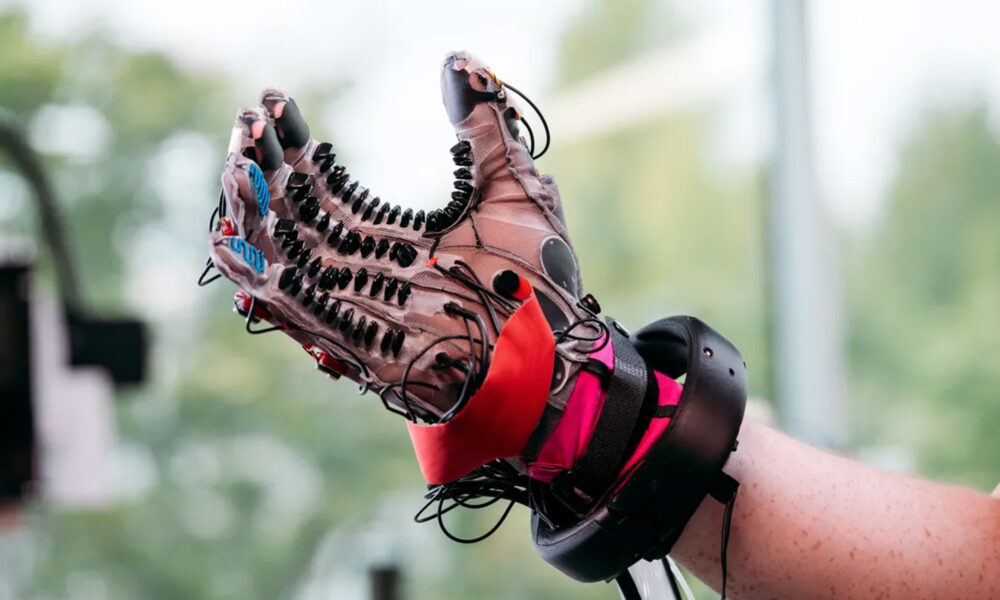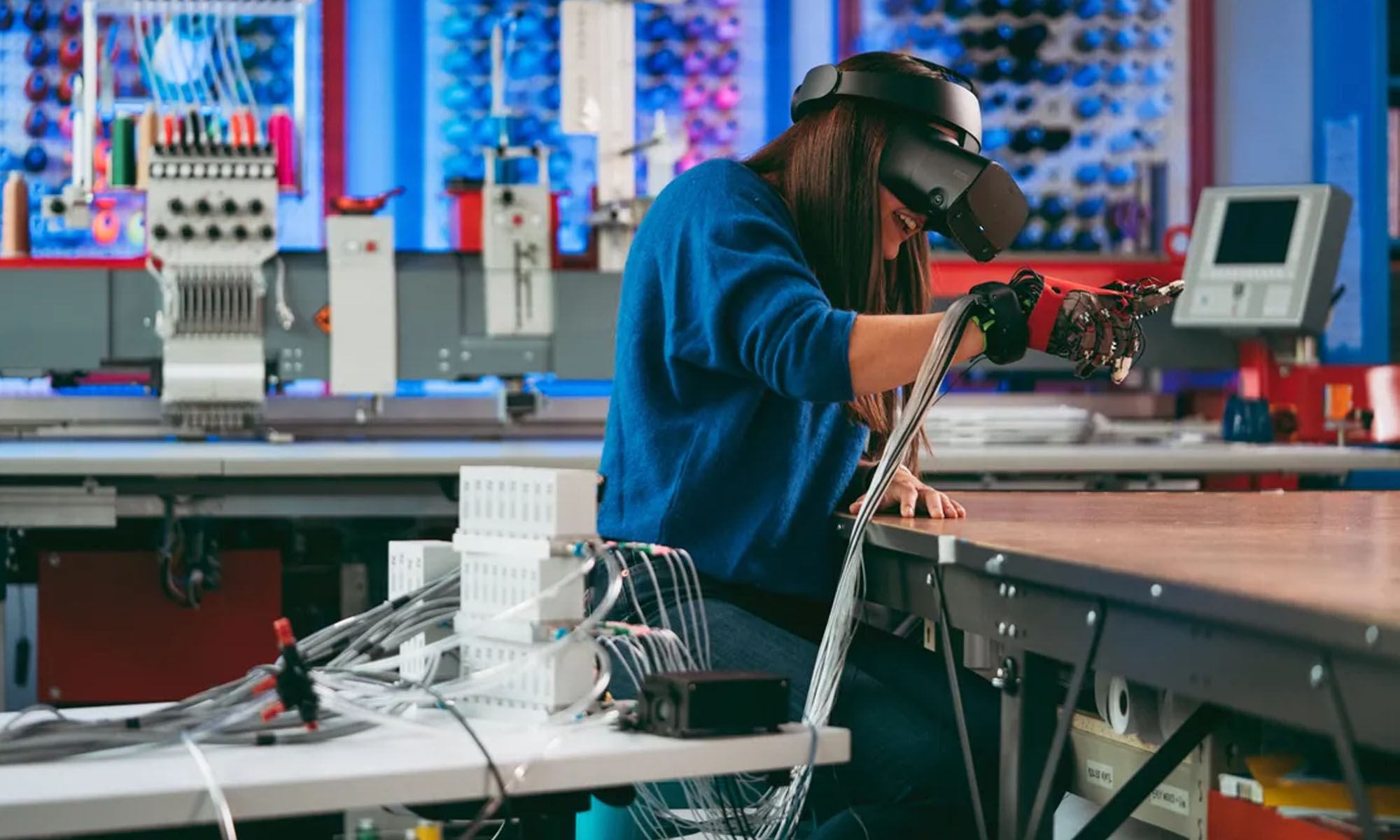News
Meta Unveils Its Prototype Haptic Gloves For Virtual Reality
The gloves are capable of simulating complex sensations to provide their wearer with natural feedback when interacting with virtual objects.

Meta — formerly Facebook — is trying to create what it describes as an embodied version of the internet, and it’s working hard on many individual pieces that are supposed to enable users to interact with it. Recently, a team at Reality Labs (RL) Research has unveiled a prototype of virtual reality haptic gloves capable of simulating complex sensations to provide their wearer with natural feedback when interacting with virtual objects.
The gloves use arrays of microfluidic actuators driven by the world’s first high-speed microfluidic processor to achieve millisecond response times while keeping power consumption minimal — something that’s extremely important for any wearable hardware device.

Once ready for release, the gloves could be used to support many virtual reality use cases. “The value of hands to solving the interaction problem in AR and VR is immense” explained RL Research Director Sean Keller. “We use our hands to communicate with others, to learn about the world, and to take action within it. We can take advantage of a lifetime of motor learning if we can bring full hand presence into AR and VR”.
Unfortunately, a lot of work still needs to be done for the technology to leave the research lab where it’s being developed. According to Keller, the team has made groundbreaking progress across multiple scientific and engineering disciplines, but the light at the end of the tunnel is only starting to become visible.
Also Read: A Beginner’s Guide To Getting Started With NFTs
Meta isn’t the only company working on haptic gloves for virtual reality. There’s also HaptX, whose founder and CEO Jake Rubin has accused Meta of copying its patented designs. In an official statement, the company claims that Meta’s gloves appear to be substantially identical to HaptX’s patented technology.
“We welcome interest and competition in the field of microfluidic haptics; however, competition must be fair for the industry to thrive” said Rubin. Meta has yet to respond to the accusation, so stay tuned for updates.